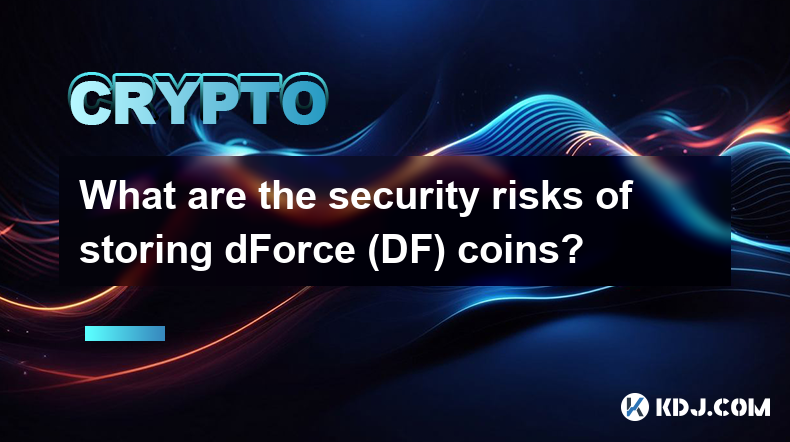-
 Bitcoin
Bitcoin $108,703.4836
0.45% -
 Ethereum
Ethereum $2,576.6839
1.58% -
 Tether USDt
Tether USDt $1.0001
0.00% -
 XRP
XRP $2.2924
-0.87% -
 BNB
BNB $660.2136
0.01% -
 Solana
Solana $151.4729
-0.29% -
 USDC
USDC $1.0000
0.00% -
 TRON
TRON $0.2866
0.04% -
 Dogecoin
Dogecoin $0.1698
0.82% -
 Cardano
Cardano $0.5831
0.13% -
 Hyperliquid
Hyperliquid $37.9814
-3.97% -
 Bitcoin Cash
Bitcoin Cash $503.9489
1.93% -
 Sui
Sui $2.8994
0.74% -
 Chainlink
Chainlink $13.5429
0.38% -
 UNUS SED LEO
UNUS SED LEO $9.0693
-0.19% -
 Stellar
Stellar $0.2524
0.15% -
 Avalanche
Avalanche $18.1959
1.02% -
 Shiba Inu
Shiba Inu $0.0...01180
1.48% -
 Toncoin
Toncoin $2.7601
-0.76% -
 Hedera
Hedera $0.1606
0.96% -
 Litecoin
Litecoin $86.6105
0.26% -
 Monero
Monero $315.7691
-0.56% -
 Polkadot
Polkadot $3.3911
0.25% -
 Dai
Dai $1.0001
0.03% -
 Ethena USDe
Ethena USDe $1.0002
0.02% -
 Bitget Token
Bitget Token $4.3076
-0.05% -
 Uniswap
Uniswap $7.5901
3.66% -
 Aave
Aave $288.0954
0.35% -
 Pepe
Pepe $0.0...01002
1.64% -
 Pi
Pi $0.4578
0.09%
What are the security risks of storing dForce (DF) coins?
To mitigate security risks, consider using hardware wallets or decentralized exchanges for storing dForce (DF) coins, ensuring private key security through offline storage and minimizing exposure to centralized exchange vulnerabilities.
Jan 06, 2025 at 03:50 pm

Key Points:
- Understanding the nature of dForce (DF) coins and their storage options
- Assessing vulnerabilities associated with different storage methods
- Identifying best practices for mitigating security risks
Security Risks of Storing dForce (DF) Coins
1. Loss or Theft from Centralized Exchanges
- Centralized exchanges hold user funds in custodial wallets, making them a target for hackers
- If an exchange is compromised, users may lose their DF coins permanently
- Weak password protection or account vulnerabilities can allow unauthorized access
- Consider using hardware wallets or decentralized exchanges for more secure storage
2. Private Key Compromise
- Private keys are essential for accessing and spending DF coins
- If your private key is compromised, your funds are at risk
- Store private keys securely offline, such as on a hardware wallet or paper backup
- Avoid storing private keys on connected devices or online accounts
3. Malicious Smart Contracts
- Smart contracts can be coded with vulnerabilities that allow hackers to steal funds
- DF coins may be vulnerable to exploits if they interact with malicious smart contracts
- Exercise caution when interacting with unfamiliar contracts, especially those requiring approval of large transactions
4. Phishing and Scams
- Phishing emails or malicious websites may trick users into providing their private keys
- Scammers impersonate legitimate services or exchanges to gain access to funds
- Be vigilant about suspicious emails, website addresses, and requests for sensitive information
5. Hardware Wallet Vulnerabilities
- While hardware wallets offer improved security, they are not immune to vulnerabilities
- Malicious firmware updates or physical tampering can compromise hardware wallets
- Always purchase hardware wallets from reputable manufacturers and keep firmware up to date
Best Practices for Security
- Use a hardware wallet. Hardware wallets store private keys offline, providing the highest level of security.
- Implement 2-factor authentication. Enable 2FA on centralized exchanges and other accounts to prevent unauthorized access.
- Only interact with trusted smart contracts. Research smart contracts thoroughly before interacting with them.
- Be wary of phishing scams. Never share your private key or sensitive information with anyone.
- Keep your software up to date. Security patches and updates address vulnerabilities.
FAQs
1. What is the most secure way to store dForce (DF) coins?
- The most secure way to store dForce (DF) coins is to use a hardware wallet. Hardware wallets keep your private keys offline, making them less vulnerable to hacks.
2. Can I store dForce (DF) coins on a centralized exchange?
- Yes, you can store dForce (DF) coins on a centralized exchange, but it is not as secure as using a hardware wallet. Centralized exchanges hold your private keys, making them a target for hackers.
3. What are the risks of storing dForce (DF) coins on a hardware wallet?
There are some risks associated with storing dForce (DF) coins on a hardware wallet, such as:
- Physical theft: Your hardware wallet could be lost or stolen.
- Device failure: Your hardware wallet could malfunction.
- Malware: Your hardware wallet could be infected with malware that could steal your private keys.
4. How can I protect my dForce (DF) coins from hackers?
There are a few things you can do to protect your dForce (DF) coins from hackers, such as:
- Use a strong password. Use a strong password that is at least 12 characters long and contains a mix of upper and lowercase letters, numbers, and symbols.
- Enable two-factor authentication. Two-factor authentication adds an extra layer of security to your account by requiring you to enter a code from your mobile phone when you log in.
- Be careful about clicking on links in emails or on websites. Phishing scams often use emails or websites that look legitimate to trick you into giving up your private keys.
Disclaimer:info@kdj.com
The information provided is not trading advice. kdj.com does not assume any responsibility for any investments made based on the information provided in this article. Cryptocurrencies are highly volatile and it is highly recommended that you invest with caution after thorough research!
If you believe that the content used on this website infringes your copyright, please contact us immediately (info@kdj.com) and we will delete it promptly.
- Kraken, Rear Wing, and Memecoins: A Wild Ride to the Singapore Grand Prix!
- 2025-07-09 00:50:12
- Cronos Skyrockets: Decoding the Reasons Behind CRO's Crypto Surge
- 2025-07-09 01:30:12
- Ethereum's Wall Street Love & Ruvi AI's Audit Rally: A Crypto Cocktail
- 2025-07-09 00:55:12
- Crypto Coins with Growth Potential: Top Picks for Savvy Investors
- 2025-07-09 01:35:13
- Onyxcoin (XCN) vs. Solana (SOL): A Promising Bet in the Crypto Game?
- 2025-07-09 00:30:12
- Pi Network's Supply Surge: A Recipe for Price Problems?
- 2025-07-09 02:10:13
Related knowledge

How to customize USDT TRC20 mining fees? Flexible adjustment tutorial
Jun 13,2025 at 01:42am
<h3>Understanding USDT TRC20 Mining Fees</h3><p>Mining fees on the TRON (TRC20) network are essential for processing transactions. U...

USDT TRC20 transaction is stuck? Solution summary
Jun 14,2025 at 11:15pm
<h3>Understanding USDT TRC20 Transactions</h3><p>When users mention that a USDT TRC20 transaction is stuck, they typically refer to ...

How to cancel USDT TRC20 unconfirmed transactions? Operation guide
Jun 13,2025 at 11:01pm
<h3>Understanding USDT TRC20 Unconfirmed Transactions</h3><p>When dealing with USDT TRC20 transactions, it’s crucial to understand w...

How to check USDT TRC20 balance? Introduction to multiple query methods
Jun 21,2025 at 02:42am
<h3>Understanding USDT TRC20 and Its Importance</h3><p>USDT (Tether) is one of the most widely used stablecoins in the cryptocurrenc...

What to do if USDT TRC20 transfers are congested? Speed up trading skills
Jun 13,2025 at 09:56am
<h3>Understanding USDT TRC20 Transfer Congestion</h3><p>When transferring USDT TRC20, users may occasionally experience delays or co...

The relationship between USDT TRC20 and TRON chain: technical background analysis
Jun 12,2025 at 01:28pm
<h3>What is USDT TRC20?</h3><p>USDT TRC20 refers to the Tether (USDT) token issued on the TRON blockchain using the TRC-20 standard....

How to customize USDT TRC20 mining fees? Flexible adjustment tutorial
Jun 13,2025 at 01:42am
<h3>Understanding USDT TRC20 Mining Fees</h3><p>Mining fees on the TRON (TRC20) network are essential for processing transactions. U...

USDT TRC20 transaction is stuck? Solution summary
Jun 14,2025 at 11:15pm
<h3>Understanding USDT TRC20 Transactions</h3><p>When users mention that a USDT TRC20 transaction is stuck, they typically refer to ...

How to cancel USDT TRC20 unconfirmed transactions? Operation guide
Jun 13,2025 at 11:01pm
<h3>Understanding USDT TRC20 Unconfirmed Transactions</h3><p>When dealing with USDT TRC20 transactions, it’s crucial to understand w...

How to check USDT TRC20 balance? Introduction to multiple query methods
Jun 21,2025 at 02:42am
<h3>Understanding USDT TRC20 and Its Importance</h3><p>USDT (Tether) is one of the most widely used stablecoins in the cryptocurrenc...

What to do if USDT TRC20 transfers are congested? Speed up trading skills
Jun 13,2025 at 09:56am
<h3>Understanding USDT TRC20 Transfer Congestion</h3><p>When transferring USDT TRC20, users may occasionally experience delays or co...

The relationship between USDT TRC20 and TRON chain: technical background analysis
Jun 12,2025 at 01:28pm
<h3>What is USDT TRC20?</h3><p>USDT TRC20 refers to the Tether (USDT) token issued on the TRON blockchain using the TRC-20 standard....
See all articles

























































































